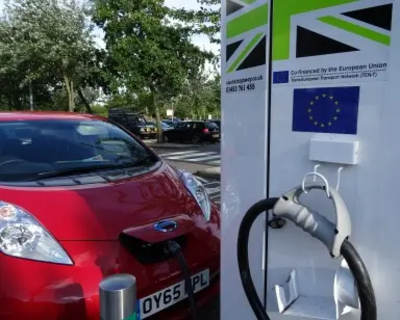A "Remarkable Surge" in Demand for Pure Electric and Plug-In Hybrid Cars in UK, but Council Responses are Inadequate.

I think we can now be very clear that the future for cars and light vans could easily be electric. The following posting is based on a report published on the https://www.nextgreencar.com web site.
The last four years have seen a "remarkable surge in demand for electric vehicles in the UK" - new registrations of plug-in cars increased from 3,500 in 2013 to more than 166,000 by August 2018. There has also been a huge increase in the number of pure-electric and plug-in hybrid models available in the UK, with many of the top manufacturers in the UK now offering a number of EVs as part of their model range.
The terms 'electric cars' and 'electric vehicles' refer to cars and vans that are zero-emission capable by running on electric power for a reasonable range. This includes pure-electric vehicles (EVs), plug-in hybrid electric vehicles (PHEVs) and hydrogen fuel cell electric vehicles. With the exception of the tiny number of FCEVs on the road, this essentially comprises any vehicle that is able to be recharged via a plug, and excludes conventional hybrids.
Electric vehicles now account for 2.8% of all vehicle registrations and EV registrations have recently been running at 4,800 per month, with the most popular all-electric car being (once again) the Nissan Leaf. There are now 21,600 Nissan Leafs on Britain's roads.
While most private EV owners usually charged their vehicles at home overnight there are now 16,700 publically available charging connections, although this is increasing less rapidly than the number of cars. For long-distance travel to be practical the UK needs far more publically accessible DC "rapid" chargers, capable of charging a vehicle 80% in half an hour. With fewer than 3,000 of these UK-wide this is becoming a constraint on the widwer use of EVs.The graphs and details can be found on the the https://www.nextgreencar.com web site.
Herts County Councillor for Tring, Nick Hollinghurst, who himself has a 30kWh capacity Leaf, says, "Local authorities should be taking a lead here - fortified by central government grants most of the first wave of public charging points - the so-called "slow" and "fast" chargers - were installed by district and borough councils like Dacorum and Watford. Unfortunately with some honourable exceptions, e.g. Milton Keynes and Luton, few have made much direct investment themselves. It is particularly disappointing the Hertfordshire County Council, although it has provided charging points for staff and just 2 sockets for councillors (who have to pay, I reassure you!), has now taken a policy decision that, although they will "facilitate the provision of charging points", they will not pay for any more to be installed".
Nick continued, "With the public now crying out for cleaner air and less pollution from road vehicles the response of most councils has been quite inadequate. Councils say they support environment protection and public health but with environmental targets to meet - and public health targets too in the case of county and unitary authorities - they are letting their electorates down. Without investment in public charging infrastructure the current healthy growth in EV will tail off and air pollution levels will increase again."
"And," he concluded, "it is the young people - the nation's future - that will be harmed most. The motorised "school run" is a significant source of air pollution, especially as many parents leave their car engines running, and we now know that air pollutinon in the young can lead to life-long physical and even cognitive problems. Local councils must do better."
